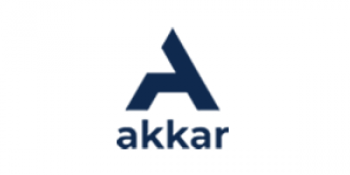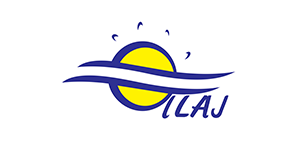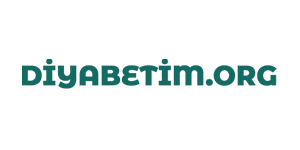
SEO Consulting
Strategic SEO Consultant Ercan ATAY
As SEO Consulting, it adopts three basic strategies. Keyword analysis (NPL reviewed), competitor analysis, weekly SEO tests, and metrics.
The above are not slogans or jargon. These focus tactics target powerful and insight-driven SEO strategies that deliver the best and long-term SEO results for our valued customers.
Ercan ATAY; Since 2002, he has been developing and managing successful SEO strategies and campaigns for leading brands, startups, and rising stars. Before establishing his title as an International SEO Consultant, he worked in the “Head Of Digital Marketing” position at the International American Medical Health company headquartered in New York. This position is firm where he worked before, again given the title of the best distributor of the year because of the digital work done by an international medical brand distributor in Turkey. Currently one of the best companies in the field of urology in Turkey. Ercan ATAY has nearly 30 certificates.
During this period, Ercan ATAY continued to provide freelance consultancy to various brands. He has helped develop SEO departments in some of these brands.
Ercan ATAY helps internal teams of brands and companies, provides training, and helps solve processes problems. It also continues to assist small and medium-sized businesses in SEO consulting. The goal is to maximize every budget, focus on business priorities, and achieve excellent results with a measurable return on investment.
Ercan ATAY, Turkey, has the most extensive collection of SEO experts, and the training Whatsapp, Facebook, and Linkedin is the founder and manager of the group. He regularly shares information with those curious about the SEO enthusiasts and answers the questions asked in these groups.
SEO STRATEGY
Ercan specializes in developing and executing full-scale, results-oriented, and unique SEO strategies. It aims to achieve sustainable growth by knowing your competitors, creating strong content, and systematically carrying out your project in the long term.
PURPOSE & FOCUS
Every page has a purpose and an action the visitor wants, and all keyword searches support On-page SEO on your site. Google examines each page and its meaning with various parameters, whether it satisfies a visitor. Any page that meets these criteria becomes the key to your ranking.
REGULAR SEO TESTS
Testing your site for on-site and off-site changes weekly or bi-weekly is the best way to find out what works quickly. These tried and tested changes form the basis for steady growth while introducing large-scale changes.
FREE SEO CONSULTANCY
In this free SEO consultancy, your site will be superficially reviewed by Ercan ATAY. Depending on the workload, a technical SEO review of your site can also be done when necessary. But this review will never be as detailed as the PAID TECHNICAL SEO REVIEW. This will only contain superficial review details to guide you through this process. Note:
This free SEO consultancy is primarily for businesses operating in Istanbul. Other cities will be given priority, respectively, according to the workload. If you are an overseas company, connect from the contact page.
FREELANCE SEO CONSULTANCY SERVICES
OFFER-BASED SEO STRATEGY
A pre-prepared package service is not offered. Every SEO strategy, consulting, or project is client-specific, depending on business requirements and current online visibility and challenges. SEO consulting services are always tailored to the needs of every business.
Since every business is different, different scenarios are encountered when their rankings are analyzed or when Google Search Console is analyzed, and 301 or 404 errors are searched. Therefore, it is natural that every business requires a different approach. A good SEO strategy should be specific, and the tools and tactics used to execute it will be different.
MOVING & MIGRATION WEB SITE
Ercan ATAY; managed many migrations and transfers of large and complex websites. Most of the time, the customers who come may experience traffic loss after the transportation and assembly process is done outside.
The critical thing to note is that several steps must be followed in every migration process, from domain to domain or from one website structure. This should not be neglected, as many transfers go wrong and cause a loss of visibility.
TRAFFIC / LOSS OF RANKING
Ercan ATAY; In SEO consultancy services, many businesses have decreased online visibility due to site loss and ranking. Previous visibility levels were determined with the studies carried out and helped correct and recover them with various interventions.
It is recommended that anyone who owns a website should have a ranking tracking tool called “Rank Tracking.” In this way, you can record valuable data that is life-saving in case of any penalty or loss in traffic, and you can take action in light of this data.
RESEARCH THE KEYWORD
Keyword analysis and research are provided with a content plan for new pages and changes for your site. These keywords come with seasonal, categorized, and defined analyses.
Nowadays, keywords obtained with the right approach can affect the purchasing stages. These keywords are grouped by topic. A data layer is created that helps create a solid content and SEO strategy. In this way, you will build your site with this layer.
GOOGLE ALGORITHM UPDATES
Consultancy is provided on the penalties imposed on your site by the search engines that experience a decrease in traffic. We are helped find ways to get rid of these penalties, identify them, and what steps to take.
Google algorithm updates are monitored instantly. These algorithm updates can throw you back in the rankings based on-page and keyword. Since research and development in this area are very complex, some studies can sometimes detect abuse by the search engine.
TECHNICAL SEO AUDIT & REPORT
It includes audits (for businesses with limited budgets) covering e-commerce sites, mobile SEO, site speed, etc.
Screaming Frog or Link-Assistant Web Site Auditor is the primary tool during the technical SEO audit. You should use them to crawl your site to get the best idea of exactly what you have and the structure.
WHAT IS SEO CONSULTANCY PROCESS?
Your situation and landscape at the time of contact are reviewed. Your website’s overall health and ranking are evaluated, and any penalties have been incurred. These are made to see any limits on your site during the study.
After evaluating your site, your competitors are reviewed. With all these analyses, an offer is presented to agree with you on your target.
If an agreement is reached, the campaign is carried out continuously.


HOW TO WORK WITH CUSTOMERS?
It is aimed to be flexible whenever possible, and online conference calls are preferred weekly or at least once every two weeks with screen sharing, where the latest findings and results can be reviewed.
Having weekly contact processes ensures that you are fully responsible for the results of your work. Various SEO tools, reports, and analyses are used with you and project management, such as Microsoft Teams, Zoom, Trello, and Google Drive.
We do not work with long-term contracts. The month-to-month working model is adopted as a principle.

FREELANCE SEO CONSULTANCY ISTANBUL FAQ
SEO stands for “Search Engine Optimization.” It is the process of optimizing a website or online content to improve its visibility and ranking in search engine results pages (SERPs) for specific keywords or phrases. The goal of SEO is to increase the quantity and quality of traffic to a website from search engines. This is typically achieved through a combination of on-page and off-page optimization techniques, such as keyword research, content creation, and link building.
Organic visibility refers to the unpaid or “natural” search results that appear in search engine results pages (SERPs), while paid visibility refers to the sponsored or “paid” search results that appear at the top or bottom of SERPs. Both types of visibility can be beneficial for different reasons.
Organic visibility is generally considered more trustworthy and credible than paid visibility because it is based on the relevance and authority of a website or content rather than the amount of money spent on advertising. Organic visibility can also be more sustainable long term because it is not dependent on a continuous advertising budget.
On the other hand, paid visibility can be a quick and effective way to drive targeted traffic to a website, and it can help promote time-sensitive or seasonal content. It also can help test keywords and target and achieve a quick boost for a new website or product. Additionally, paid visibility can help target specific geographic regions or specific groups of people.
In summary, both organic and paid visibility have their benefits. A well-rounded approach combining both tactics is often the best way to achieve optimal search engine visibility.
SEO, SEM, and SMM are all digital marketing-related, but they refer to different tactics and strategies.
SEO, or Search Engine Optimization, is optimizing a website or online content to improve its visibility and ranking in search engine results pages (SERPs) for specific keywords or phrases. SEO aims to increase the quantity and quality of traffic to a website from search engines. This is typically achieved through a combination of on-page and off-page optimization techniques, such as keyword research, content creation, and link building.
SEM, or Search Engine Marketing, is a broader term encompassing both SEO and paid search advertising (PPC). SEM promotes websites or content by increasing their visibility and ranking in search engine results in pages through paid and unpaid means.
SMM, or Social Media Marketing, promotes a brand, product, or service through social media platforms. It is the process of gaining traffic or attention through social media sites.
In summary, SEO is a subset of SEM focused on organic visibility on search engine results. At the same time, SEM is a broader term that includes SEO and paid advertising, and SMM is focused on promoting a brand, product, or service through social media platforms.
Working with an SEO consultant in Istanbul can bring several benefits to a business, including:
-
Increased visibility: An SEO consultant can help increase a business’s visibility in search engine results pages (SERPs) for specific keywords or phrases, which can lead to more traffic and potential customers for the business.
-
Improved website design and functionality: A consultant can analyze the website and suggest ways to improve its design and functionality, making it more user-friendly and increasing its chances of ranking well in SERPs.
-
Targeted marketing: An SEO consultant can help identify the target audience for a business and develop a strategy to target them through search engine optimization and other marketing methods.
-
Local Search Optimization: An experienced SEO consultant can help to optimize your site for local search, which can be particularly beneficial for businesses with a physical location or that target customers in a specific geographic area.
-
Increased revenue: An SEO consultant can help the business generate more revenue through online sales or leads by increasing visibility and traffic to a business’s website.
-
Stay up-to-date with Google Algorithm Updates: SEO is a dynamic field that changes frequently. An SEO consultant can help you stay on top of the latest algorithm updates, so your website will rank well in search engine results.
-
Cost-effective: Hiring an SEO consultant can be a cost-effective way to improve a business’s online presence. It can save the business from investing time and resources to develop and implement an SEO strategy in-house.
-
Experience and knowledge: An experienced SEO consultant will know the latest techniques and strategies and have experience in different industries and niches, which can help your business achieve the desired results.
If you’re looking for an SEO expert, here are a few things you can do:
-
Look for an experienced professional with a proven track record of success. Check out their portfolio, testimonials, and case studies to see examples of their work and the results they’ve achieved for their clients.
-
Consider their areas of expertise and whether they have experience in your industry or niche.
-
Check for certifications, awards, or memberships in professional organizations, indicating that the consultant is up-to-date with industry trends and best practices.
-
Look for a transparent and communicative consultant willing to explain their strategies and tactics and available to answer your questions and provide regular updates on the progress of your campaign.
-
Finally, ensure a clear understanding of your goals, budget, and expectations before hiring an SEO expert.
Keep in mind that SEO is a long-term process; it takes time and effort to see results, so be prepared to be patient and persistent in working with an SEO expert to achieve your goals.
An SEO expert specializes in optimizing websites and online content to improve their visibility and ranking in search engine results pages (SERPs). SEO experts use various techniques and strategies to increase the quantity and quality of traffic to a website from search engines, with the ultimate goal of achieving higher rankings for specific keywords or phrases.
An SEO expert typically has a strong understanding of search engine algorithms and how they work, as well as an in-depth knowledge of on-page and off-page optimization techniques such as keyword research, content creation, and link building. They also have a good understanding of the technical aspects of a website and how to optimize it for search engines, such as making sure the website is mobile-friendly, fast-loading, and has a user-friendly design.
SEO experts also have experience with analytics and tracking tools to measure the success of an optimization campaign and use this data to make informed decisions about how to improve the website’s performance.
In summary, an SEO expert is a professional with the skills and knowledge to improve a website’s visibility and ranking in search engine results pages through search engine optimization techniques and strategies.
Yes, a freelance SEO consultant can help a small business. Small businesses often benefit from working with a freelance consultant rather than an agency. A freelance consultant can provide the same services as an agency, but often at a lower cost and with more flexibility.
Here are a few ways a freelance SEO consultant can help a small business:
-
Increase visibility: A consultant can help a small business increase its visibility in search engine results pages (SERPs) for specific keywords or phrases, which can lead to more traffic and potential customers for the business.
-
Optimize the website: A consultant can analyze the website and suggest ways to improve its design and functionality, making it more user-friendly and increasing its chances of ranking well in SERPs.
-
Targeted marketing: An SEO consultant can help identify the target audience for a small business and develop a strategy to target them through search engine optimization and other marketing methods.
-
Cost-effective: Hiring a freelance SEO consultant can be a cost-effective way for small businesses to improve their online presence, as it can save them from having to invest the time and resources to develop and implement an SEO strategy in-house.
-
Local Search Optimization: An experienced SEO consultant can help to optimize your site for local search, which can be particularly beneficial for small businesses with a physical location or that target customers in a specific geographic area.
-
Experience and knowledge: An experienced SEO consultant will know the latest techniques and strategies and have experience in different industries and niches, which can help your small business achieve the desired results.
-
Personalized attention: Freelance consultants generally have a smaller client base than agencies, which means they can provide personalized attention and work closely with small business owners to understand their specific needs and goals.
It’s always essential to have clear communication and understanding of what you expect to get out of the service and what the consultant can deliver. Be sure to ask for references and case studies to understand the consultant’s experience and expertise clearly.
Yes, a local SEO expert can help a small business improve its online visibility and reach more customers in its local area. Local SEO is a specialized form of search engine optimization that focuses on optimizing a business’s online presence for customers searching for products or services in a specific geographic location.
Here are a few ways a local SEO expert can help a small business:
-
Optimize for local search: A local SEO expert can help a small business optimize its website and online listings for local search, improving its visibility in search engine results pages (SERPs) for customers searching for products or services in their area.
-
Google My Business Optimization: A local SEO expert can help a small business claim and optimize its Google My Business listing, which can improve its visibility in Google Maps and local search results.
-
Create local citations: A local SEO expert can help a small business create and optimize local citations, which mention the business’s name, address, and phone number on other websites. These citations can help improve the business’s visibility in local search results and also help to establish trust and credibility.
-
Build local backlinks: A local SEO expert can help a small business build backlinks from other local websites, which can help improve their visibility in local search results and also help to establish trust and credibility.
-
Optimize for Localized Keywords: a local SEO expert can help a small business to identify and optimize their website for localized keywords, which can help them to reach its target audience more effectively.
-
Targeted marketing: An SEO consultant can help identify the target audience for a small business and develop a strategy to target them through search engine optimization and other marketing methods in a specific geographic location.
-
Track progress and make adjustments: An experienced local SEO expert will know the latest techniques and strategies and have experience in different industries and niches. They will also be able to track the campaign’s progress and make adjustments as needed to ensure the best results for the small business.
It’s always essential to have clear communication and understanding of what you expect to get out of the service and what the consultant can deliver. Be sure to ask for references and case studies to clearly understand the consultant’s experience and expertise in local SEO.
Technical SEO refers to optimizing a website’s underlying architecture and infrastructure to improve its visibility and ranking in search engine results pages (SERPs). Technical SEO focuses on the technical aspects of a website, including the code, server configuration, and other elements that may affect how search engines crawl and index a website.
Here are a few examples of technical SEO best practices:
-
Crawlability: Technical SEO ensures that search engines can easily crawl and index a website’s pages. This can be done by creating a sitemap, using clean URLs, and providing straightforward navigation.
-
Page speed: Technical SEO also ensures a website loads quickly, as page speed is a ranking factor in many search engines. Optimizing images, minifying code, and using a content delivery network (CDN) are some ways to improve page speed.
-
Mobile-friendly: Technical SEO also ensures that a website is mobile-friendly, as mobile optimization is a ranking factor in many search engines. This includes using a responsive design, providing a mobile version of the website, and optimizing for mobile-specific features such as touch and swipe.
-
Indexability: Technical SEO also involves ensuring that all of the website’s pages can be indexed by search engines. This can be done by including a robots.txt file and meta tags on the website’s pages to instruct search engines on which pages to index and which to ignore.
-
Schema Markup: Technical SEO also involves using schema markup, a code that helps search engines understand a website’s content. Schema markup can provide information about a website’s pages, such as the page’s author, date of publication, and more.
-
Security: Technical SEO also involves ensuring that a website is secure, and it’s essential to have an SSL certificate and use HTTPS to encrypt the data transmitted between the website and the user.
-
Log file analysis: Technical SEO also involves analyzing log files to identify issues such as crawl errors, broken links, and other technical issues affecting a website’s visibility and ranking.
Technical SEO is an ongoing process, and keeping up with the latest best practices and search engine algorithm changes is essential to ensure a website stays visible and relevant.
On-page SEO refers to optimizing the content and structure of a website to improve its visibility and ranking in search engine results pages (SERPs). On-page SEO focuses on optimizing the elements of a website that are within the control of the website’s owners and developers, such as the content, images, headings, and meta tags.
Here are a few examples of on-page SEO best practices:
-
Content optimization: On-page SEO involves creating high-quality, relevant, and useful content that addresses the target audience’s needs. This includes using keywords in the content and meta tags, providing a clear and easy-to-use structure, and ensuring that the content is well-written and error-free.
-
Title tags and meta descriptions: On-page SEO also involves optimizing the title tags and meta descriptions of a website’s pages, which are the snippets of text that appear in the SERPs. These tags should be unique, informative, and include relevant keywords.
-
Headings: On-page SEO also involves using headings and subheadings to structure the content and make it easy to read. The headings should be used in a hierarchical manner, with H1 tags being the most important and H6 tags being the least important.
-
Internal linking: On-page SEO also involves creating a clear and easy-to-use navigation structure, including internal links to other pages on the website. This helps distribute link equity around the site and makes it easier for visitors to find what they are looking for.
-
Image optimization: On-page SEO also involves optimizing images by using descriptive file names, alt tags, and captions. This helps search engines understand the images’ content and improves the user experience.
-
Structured data: On-page SEO also involves using structured data, a code that helps search engines understand a website’s content. Structured data can provide information about a website’s pages, such as the page’s author, date of publication, and more.
-
Optimize for the featured snippets: Optimizing for featured snippets is a form of on-page SEO that involves creating a summary of your content that answers a user’s question concisely and usefully. This can be done by including headings, subheadings, and lists in your content.
On-page SEO is an ongoing process, and it’s essential to keep up with the latest best practices and changes in search engine algorithms to ensure that a website stays visible and relevant. To achieve the best results, it’s essential to work with an experienced on-page SEO expert who can help you identify and resolve any issues affecting your website’s visibility and ranking.
Off-page SEO refers to optimizing the external factors influencing a website’s visibility and ranking in search engine results pages (SERPs). Off-page SEO focuses on activities performed outside of a website’s domain, including link building, social media marketing, and online reputation management. Off-page SEO aims to increase the number and quality of external links pointing to a website, as search engines consider these links to measure the website’s authority and relevance.
Here are a few examples of off-page SEO best practices:
-
Link building: Off-page SEO involves building high-quality, relevant, and authoritative links to a website. This can be done by creating valuable and informative content that other websites want to link to or by reaching out to other websites and asking them to link to your content.
-
Social media marketing: Off-page SEO also involves promoting a website on social media platforms, such as Facebook, Twitter, and LinkedIn. This can help to increase brand awareness, drive traffic to a website, and generate backlinks.
-
Online reputation management: Off-page SEO also involves monitoring and managing a website’s online reputation. This can include addressing negative comments or reviews and actively promoting positive feedback and testimonials.
-
Brand mentions: Off-page SEO also involves monitoring brand mentions on the web and turning them into backlinks if possible.
-
Influencer marketing: Off-page SEO also involves working with influencers in your industry to promote your website and products or services.
-
Local SEO: Off-page SEO also involves optimizing a website for local search, a form of search focused on a specific geographic area. This can include creating and optimizing local business listings and encouraging customers to leave reviews on local sites.
Off-page SEO is an ongoing process, and it’s essential to keep up with the latest best practices and changes in search engine algorithms to ensure that a website stays visible and relevant. To achieve the best results, you must work with an experienced off-page SEO expert who can help you identify and resolve any issues affecting your website’s visibility and ranking.
Mobile SEO is important because more and more internet users are accessing the web through mobile devices such as smartphones and tablets. For a website to be easily accessible and user-friendly on these devices, it needs to be optimized for mobile. This includes using a responsive design, ensuring that the site loads quickly, and ensuring that the site’s content is easily readable on a smaller screen. Additionally, Google has stated that mobile-friendliness is a ranking factor in its search algorithm, so a site optimized for mobile will have a better chance of appearing at the top of search results.
“Mobile first” is a design approach that prioritizes the mobile user experience over the desktop experience. It is a philosophy that considers the growing number of internet users who access the web primarily through their smartphones and other mobile devices.
The mobile-first approach means designing and developing a website with a mobile user in mind and progressively enhancing the experience for larger screens. This includes designing the website layout, content, and functionality with a focus on the smaller screen sizes and touch-based interactions of mobile devices.
Regarding search engine optimization (SEO), Google has announced that it will use a mobile-first index for its search results. It means that Google will use the mobile version of a website’s content to index and rank pages from that site rather than the desktop version. This is because more and more users are searching on mobile devices, and Google wants to ensure that these users have the best possible experience.
The mobile-first approach also means ensuring that your website is mobile-friendly, which means that it should be easy to navigate and read on a small screen, load quickly, and be easily readable without having to zoom in. It is also essential that your website is responsive, meaning that it automatically adapts to the screen size of the device it is being viewed on.
In summary, the mobile-first approach is a design philosophy and an SEO strategy that prioritizes the mobile user experience. It is essential to adopt this approach to ensure that your website is easily accessible and user-friendly for mobile users.
Harmful backlinks are links from low-quality or spammy websites that can harm the reputation and rankings of a website. If your competitors have many of these types of backlinks pointing to their site, it may negatively impact their search engine rankings. However, simply finding these harmful backlinks and reporting them to Google will not necessarily improve your rankings. It’s essential to focus on creating high-quality, relevant backlinks to your site to improve your rankings.
Backlinks are one of many ranking factors that search engines use to determine the relevance and authority of a website. Google and other search engines use sophisticated algorithms to evaluate and determine the quality of backlinks. They also consider other factors, such as the linking site’s relevance, authority, and credibility.
You can always use a backlink analysis tool to check the backlink profile of your competitors and use this information to improve your backlink-building strategy. However, it is essential to remember that building backlinks should be done naturally. Buying links or participating in link farms can violate Google’s guidelines and lead to penalties or even bans from the search engine.
Backlink equality refers to the balance and diversity of the backlinks pointing to a website. A website with a balanced and diverse backlink profile is seen as more authoritative and trustworthy by search engines and is, therefore, more likely to rank well in search results.
A website with a balanced backlink profile will have a mix of different types of backlinks, such as:
- Natural editorial links: links that are earned through creating high-quality content that other websites want to link to
- Brand-mentions: links that are earned through having your brand or website mentioned on other websites without a link
- Social shares: links that are earned through having your content shared on social media platforms
A website with a diverse backlink profile will have backlinks from a variety of different sources, such as:
- Different types of websites: links from different websites, such as news websites, blogs, forums, etc.
- Different countries and languages: links from websites in different countries and different languages
- Different anchor texts: links with different anchor texts rather than having the exact anchor text over and over again
Having a balanced and diverse backlink profile is seen as a positive signal by search engines, and it can help improve a website’s rankings.
Content gap analysis is the process of identifying the gaps in a website’s content about the content available on the competitors’ websites or industry-related topics. The goal of content gap analysis is to identify opportunities for creating new content to help a website rank higher in search engine results pages (SERPs) and drive more traffic to the site.
Here are the steps that are typically involved in a content gap analysis:
-
Identify competitor websites: Research the top-ranking websites for specific keywords relevant to your business or industry. These will be the websites to that you will be comparing your content.
-
Analyze competitor content: Review the content on the competitor websites, noting the topics covered, the types of content (e.g., blog posts, infographics, videos, etc.), and the format of the content (e.g., long-form or short-form).
-
Identify content gaps: Compare the content on your website to the content on the competitor’s websites. Look for gaps in the topics covered, the types of content, and the format. These gaps represent opportunities for creating new content to help your website rank higher in search engine results pages (SERPs) and drive more traffic to the site.
-
Prioritize content gaps: Once you have identified the content gaps, prioritize them based on the potential traffic and revenue they could generate and the resources required to create the content.
-
Create a content plan: Develop a plan for creating new content to help fill the identified gaps. This should include a schedule for creating the content, a list of the resources that will be required, and a plan for promoting the content.
Content gap analysis is an integral part of SEO because it can help to ensure that your website has the most comprehensive, relevant, and high-quality content that will help to drive more traffic to the site. It also helps to identify opportunities for creating new content that will help a website to rank higher in search engine results pages (SERPs) and drive more traffic to the site.
The length of time it takes for SEO consulting to show effects can vary depending on several factors, such as the website’s current state, the level of competition in the industry, and the resources allocated to the SEO efforts.
SEO is a long-term strategy that can take several months or even longer to see significant results. However, some initial changes can be made to a website that can show improvements in search engine rankings and organic traffic in a shorter period. These initial changes may include optimizing meta tags, improving website structure, and creating high-quality content.
However, it can take several months or longer to see the effects of SEO consulting for more significant and long-term improvements. This is because search engines take time to crawl and index new and updated content, and it can take time for changes to a website to be reflected in search results. Additionally, building a solid backlink profile and increasing website authority takes time, and it can take several months to see the effects of a well-executed link-building campaign.
It’s also important to note that SEO is an ongoing process, and it’s not something that can be “fixed” and left alone. To maintain and improve search engine rankings, monitoring and adapting the SEO strategy as needed is essential.
No one can guarantee SEO results, as search engine rankings are determined by complex algorithms that consider various factors, including the relevance and quality of a website’s content, the number and quality of backlinks pointing to a website, and the website’s technical setup. These algorithms are constantly changing and updating, so no one can guarantee a specific ranking or outcome.
While SEO experts can use best practices and strategies to improve a website’s visibility in search results, there is no way to guarantee specific results. Additionally, SEO can take time to yield results, and the time frame for seeing results can vary depending on the industry’s competitiveness and the website’s current state.
Be cautious of any company or individual that guarantees specific results or a particular ranking within a certain timeframe. These guarantees are often unrealistic, and you may waste money and time.
Instead, a reputable SEO expert will provide a detailed analysis of the current state of your website and will give you an action plan to improve its visibility in search results. They will also provide regular reports on the progress of the optimization process and will work with you to make adjustments as necessary.
In summary, SEO is a continuous process, and the results of it can be affected by many factors. Therefore no one can guarantee specific results or rank for a website in the search engine. A reputable SEO expert will provide you with a detailed plan to improve your website’s visibility but can’t guarantee specific results.
Yes, it is possible for a business based in Turkey to work with an SEO consultant regardless of their location. With the advancements in technology and communication, it is now possible for businesses and consultants to work together remotely, regardless of their physical location.
An SEO consultant can work with you to analyze your website, identify areas for improvement, and develop a strategy to help improve your search engine rankings and drive more organic traffic to your site. They can do this by using various tools to analyze your websites, such as Google Analytics, Ahrefs, Moz, SEMrush, and more.
Communication can be done through various channels, such as email, instant messaging, video conferencing, or phone calls. An SEO consultant can provide regular updates and reports on the campaign’s progress, so you will always be informed about the work done and the results.
It’s also important to note that geographical boundaries do not limit SEO, and the same principles and techniques apply to a website regardless of location. As long as you have a website and a target audience, an SEO consultant can help you improve your search engine rankings and drive more organic traffic to your site.
Leave a message on the contact page on the site, or you can contact by filling the FREE SEO CONSULTANCY form on this page.
























































































